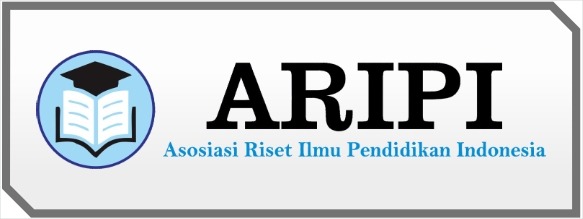From Co-Teaching to Virtual Reality: The Transformative Potential of Multidisciplinary Education
DOI:
https://doi.org/10.61194/education.v1i1.881Keywords:
Multidisciplinary Education, Interdisciplinary Learning, Problem-Based Learning, Collaborative Teaching, Digital Innovation in Education, Higher Education Reform, Health Professional TrainingAbstract
The growing complexity of educational and professional challenges highlights the need for multidisciplinary approaches in higher education. This review synthesizes recent evidence on their integration, effectiveness, and challenges across diverse contexts. Literature was systematically retrieved from Scopus, Web of Science, and Google Scholar using keywords such as multidisciplinary education, interdisciplinary learning, transdisciplinary approaches, educational practice, and collaborative learning. Inclusion criteria focused on peer-reviewed studies within the last fifteen years that examined multidisciplinary design, implementation, or outcomes. Findings revealed that integrative models such as problem-based learning and co-teaching significantly enhanced students’ problem-solving, collaboration, and critical thinking skills. Digital technologies, including Virtual Reality and Learning Analytics, were shown to facilitate experiential learning and provide data-driven feedback, although disparities in access limited their global applicability. In health education, multidisciplinary teams improved clinical competence and interpersonal collaboration, while systemic barriers such as rigid institutional frameworks, insufficient resources, and cultural hierarchies constrained wider adoption, particularly in developing contexts. Policy frameworks and institutional leadership were identified as key enabling factors, with European models offering examples of effective integration. Despite these advances, gaps remain in longitudinal research and comparative cross-national studies. The review concludes that deliberate policy reforms, investment in infrastructure, and faculty development are necessary to overcome barriers and fully realize the transformative potential of multidisciplinary education.
References
Aswegen, H., Patman, S., Plani, N., & Hanekom, S. (2017). Developing minimum clinical standards for physiotherapy in South African ICUs: A qualitative study. Journal of Evaluation in Clinical Practice, 23(6), 1258–1265. https://doi.org/10.1111/jep.12774 DOI: https://doi.org/10.1111/jep.12774
Bertram, L. (2020). Digital learning games for mathematics and computer science education: The need for preregistered RCTs, standardized methodology, and advanced technology. Frontiers in Psychology, 11. https://doi.org/10.3389/fpsyg.2020.02127 DOI: https://doi.org/10.3389/fpsyg.2020.02127
Crichton, M., Crichton, H., & Colville, G. (2022). Students’ perceptions of problem-based learning in multidisciplinary groups when seeking to solve an engineering grand challenge. Journal of Problem Based Learning in Higher Education. https://doi.org/10.54337/ojs.jpblhe.v10i1.6823 DOI: https://doi.org/10.54337/ojs.jpblhe.v10i1.6823
Dener, H., & Elçin, M. (2024). The experiences of cardiovascular surgeons and nurses with mutual support through interprofessional collaboration in the intensive care unit. Nursing in Critical Care. https://doi.org/10.1111/nicc.13220 DOI: https://doi.org/10.1111/nicc.13220
Djuric, D., Mysore, S., Zeghan, A., Oudeh, A., Al, Q., Al, H., … & Al, J. (2022). Pediatric rehabilitation services during COVID-19 pandemic in the United Arab Emirates. Srpski Arhiv Za Celokupno Lekarstvo, 150(11–12), 636–642. https://doi.org/10.2298/sarh220722105d DOI: https://doi.org/10.2298/SARH220722105D
Feenstra, K., Abeln, S., Westerhuis, J., Santos, F., Molenaar, D., Teusink, B., … & Heringa, J. (2018). Training for translation between disciplines: A philosophy for life and data sciences curricula. Bioinformatics, 34(13), i4–i12. https://doi.org/10.1093/bioinformatics/bty233 DOI: https://doi.org/10.1093/bioinformatics/bty233
Hann, M., Hayes, C., Lacroix-Hugues, V., Touboul, P., McNulty, C., Syeda, R., … & Demirjian, A. (2023). Evidence-based health interventions for the educational sector: Application and lessons learned from developing European food hygiene and safety teaching resources. Food Control, 143, 109219. https://doi.org/10.1016/j.foodcont.2022.109219 DOI: https://doi.org/10.1016/j.foodcont.2022.109219
Hero, L., & Lindfors, E. (2019). Students’ learning experience in a multidisciplinary innovation project. Education + Training, 61(4), 500–522. https://doi.org/10.1108/et-06-2018-0138 DOI: https://doi.org/10.1108/ET-06-2018-0138
MacMahon, S., Leggett, J., & Carroll, A. (2022). Partnering to learn: A collaborative approach to research translation for educators and researchers. Mind Brain and Education, 16(2), 79–88. https://doi.org/10.1111/mbe.12317 DOI: https://doi.org/10.1111/mbe.12317
Nana, M., Shute, C., Williams, R., Kokwaro, F., Riddick, K., & Lane, H. (2020). Multidisciplinary, patient-centred approach to improving compliance with venous thromboembolism (VTE) prophylaxis in a district general hospital. BMJ Open Quality, 9(3), e000680. https://doi.org/10.1136/bmjoq-2019-000680 DOI: https://doi.org/10.1136/bmjoq-2019-000680
Omran, S., Leong, S., Blebil, A., Mohan, D., Ang, W., & Teoh, S. (2024). The needs and gaps in pharmacogenomics knowledge and education among healthcare professionals in Malaysia: A multisite Delphi study. Clinical and Translational Science, 17(11). https://doi.org/10.1111/cts.70057 DOI: https://doi.org/10.1111/cts.70057
Paal, P., Brandstötter, C., Lorenzl, S., Larkin, P., & Elsner, F. (2019). Postgraduate palliative care education for all healthcare providers in Europe: Results from an EAPC survey. Palliative & Supportive Care, 17(5), 495–506. https://doi.org/10.1017/s1478951518000986 DOI: https://doi.org/10.1017/S1478951518000986
Park, S., Yun, J., Lee, J., & Cho, I. (2024). Research trends in nurse–parent partnership: A scoping review of the paediatric field in South Korea. Nursing Open, 11(8). https://doi.org/10.1002/nop2.2248 DOI: https://doi.org/10.1002/nop2.2248
Pereira, C., Tavares, C., & Rosas, A. (2016). Fatores intervenientes na preceptoria num serviço especializado em HIV/AIDS: Estudo etnográfico. Online Brazilian Journal of Nursing, 15(4), 624–631. https://doi.org/10.17665/1676-4285.20165486 DOI: https://doi.org/10.17665/1676-4285.20165486
Righi, E., Visentin, A., Mirandola, M., Rigo, C., Cutone, C., Rocchi, M., … & Tacconelli, E. (2024). A digital approach to improve infection screening among solid organ transplant candidates. Clinical Transplantation, 38(7). https://doi.org/10.1111/ctr.15408 DOI: https://doi.org/10.1111/ctr.15408
study. Pediatric Emergency Care, 41(2), 116–121. https://doi.org/10.1097/pec.0000000000003230 DOI: https://doi.org/10.1097/PEC.0000000000003230
Visscher, K., Johnson, C., MacLeod, M., & Veen, J. (2022). Multi-, inter- and transdisciplinarity in challenge-based engineering education. https://doi.org/10.5821/conference-9788412322262.1176 DOI: https://doi.org/10.5821/conference-9788412322262.1176
Walton, M., Ardolino, T., Cheung, R., Zheng, H., Leotsakos, A., & Barraclough, B. (2014). Educating future leaders in patient safety. Journal of Multidisciplinary Healthcare, 381. https://doi.org/10.2147/jmdh.s53792 DOI: https://doi.org/10.2147/JMDH.S53792
Allison, J., Hwang, G.-J., Mayer, R. E., Pellas, N., Karnalim, O., de Freitas, S., Ng, O.-L., Huang, Y.-M., Hooshyar, D., Seidman, R. H., Al-Emran, M., Mikropoulos, T. A., Schroeder, N. L., Roscoe, R. D., & Sanusi, I. (2025). From Generative AI to Extended Reality: Multidisciplinary Perspectives on the Challenges, Opportunities, and Future of Educational Computing. Journal of Educational Computing Research, 63(6), 1327–1363. https://doi.org/10.1177/07356331251359964 DOI: https://doi.org/10.1177/07356331251359964
Sissodia, R., & Dwivedi, V. (2025). Multidisciplinary approaches to AI integration in education and healthcare systems (pp. 435–463). https://doi.org/10.4018/979-8-3373-5072-1.ch017 DOI: https://doi.org/10.4018/979-8-3373-5072-1.ch017






